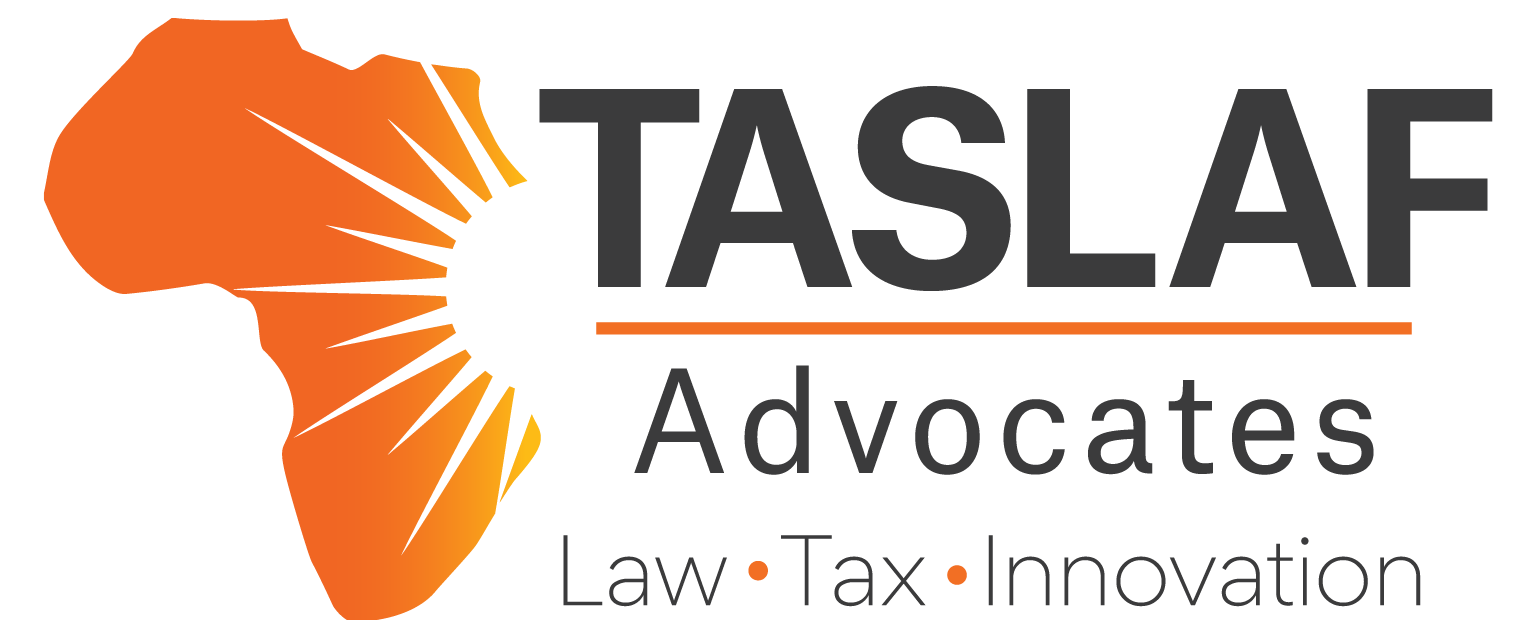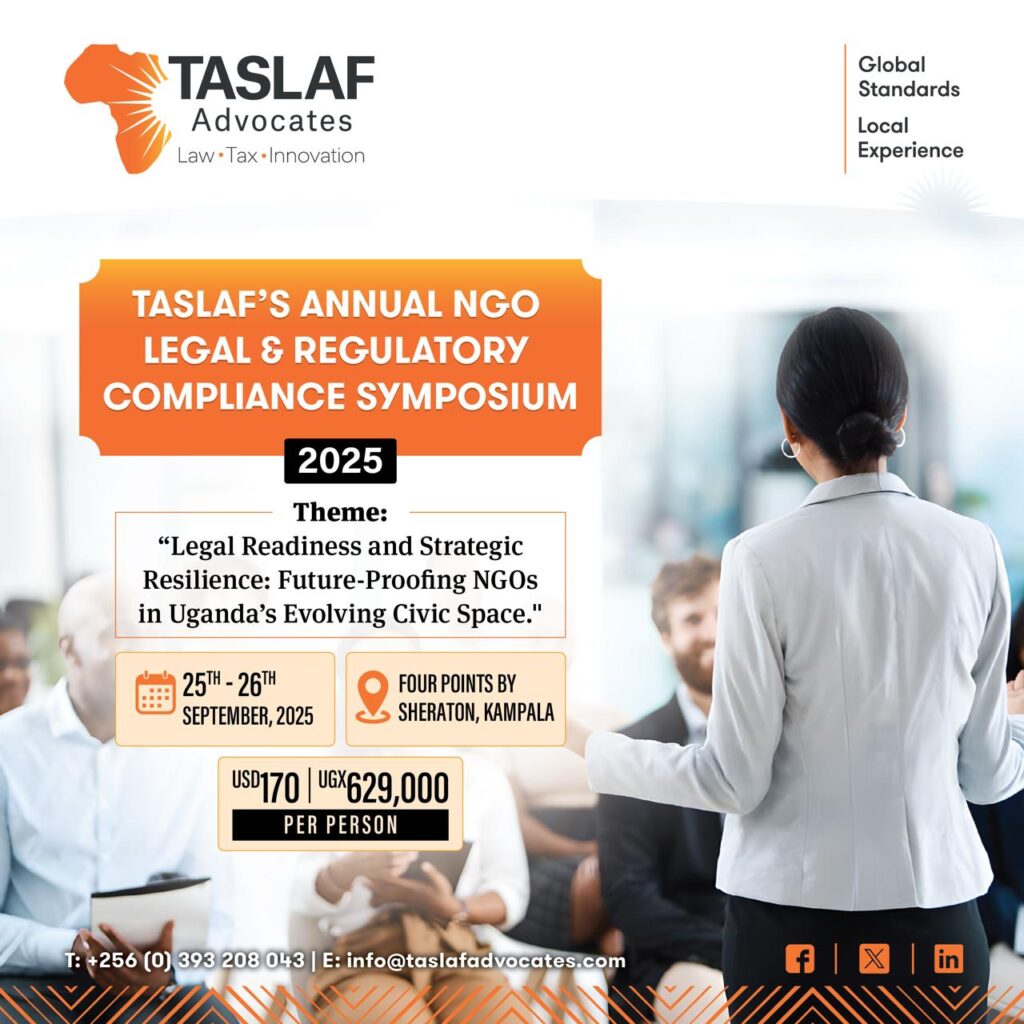At the time of writing this alert the ministry of health has reported that there is no case of covid-19 in Uganda
This legal alert sets out some legal obligations for both employers and employees working for the non-profit/NGO sector in Uganda.
Employment Considerations
Section 13 and 14 of Uganda’s Occupational Health and Safety Act No.1 of 2006 imposes a duty on an employer to ensure a safe and healthy work environment for employees. Employers are legally required to take precautionary measures in circumstances where there is a reasonable apprehension that an employee has been exposed to COVID-19 and must take preventative steps to ensure that the working environment is safe for the employees.
In light of the above obligations, we have highlighted some preventative measures that can be taken by both employers and employees in the circumstances;
- Travel ban: It is advised that all non-essential trips to countries where COVID-19 has been reported. In the event that an employee must travel all employees who travel for essential trips to any country must get screened before reporting to work.
- Suspected cases: If any employee gets symptoms of the corona virus they should immediately be allowed to take leave from work and potentially work from home (self-quarantined) for at least 14 days before reporting back to their work place. We hasten to add that this should only be allowed where a reasonable apprehension of fear exists. In such circumstances the employer may decide to regard the absence as a form of sick leave in respect of which the employees would be entitled to be paid.
- Access to the workplace: The Occupational Health and Safety Act entitles employers to impose rules for entry into their premises in order to ensure health and safety, and they may legitimately exclude people on this basis. If a person displays symptoms associated with the virus, the employer may require the person concerned to leave the premises and urge her/ him to obtain a medical opinion. This does not only affect employees but can also affect suppliers, support staff and others.
- Working remotely: Considering the fact that countries are imposing serious restrictions on different entities as the coronavirus crisis looms, it is very possible for the government or employers to order closing of work places and employees working from their homes. In such circumstances the employer may design an “emergency contract” (to be read together with the original contracts) with employees allowing them to execute their obligations remotely from home. Such a contract must clearly state the terms and conditions. It should consider issues of data privacy, work delivery mechanisms, consequences for failure to deliver work and others.
- Insurance: It is important for all non-profit organizations that are involved in the humanitarian response to COVID -19 to take out insurance to cover the risks that may arise due to the outbreak of the coronavirus disease. The Workers Compensation Act 2000 requires employers to insure their employees against injuries or scheduled diseases which may be incurred in the course of their employment. In the event that an employee contracts such a disease, then the organization would be covered.
Closing down business
If all the above measures are not appropriate to sufficiently ensure the safety of employees or visitors, it may (as a last opinion) be necessary to close down operations. If employees are able to work from home, the employer would continue to pay the employees who are working remotely as discussed above. If the closure is likely to be for a prolonged period, it may not be possible to continue to pay the employees, and the employer would need to carefully consider its options. At this point it is important to agree with employees on the next course of action.
The same should be considered in relation to the provisions of individual employment contracts that may entitle the employer to suspend the contract due to unforeseen circumstances.
Data Protection & Privacy Considerations
As the Coronavirus outbreak continues to develop, organization’s must consider whether to allow some or all of their workforce and, potentially, the workforce of their most critical vendors to work remotely. While remote working arrangements may be effective to slow the community spread of COVID-19 from person to person, they present potential data protection challenges that can be different from on premise work. Access or transmission of confidential company information as well as Individual’s Personal information are key data security concerns that should be considered.
We recommend that Organizations should review their current data protection and privacy policies to determine if there are any established data protection guidelines for remote work and remote access to company information systems. If no relevant plans or policies are in place, this is a good time to establish at least some basic guidelines to address remote access to company information systems and use by employees of personal devices for organization business.
Legal Compliance Obligations
With the impact and uncertainty of the COVID-19, it is important for organizations to remember their legal obligations as well as stay on top of the measures that governments may take in regards to Tax and Legal reliefs. The NGO Act provides for several legal compliance obligations that an NGO must fulfil such as; renewing its permit within six months before it expires, filling annual returns to the NGO bureau every year and filling its Tax returns. Compliance with these obligations should be maintained unless a government directive to post pone the same is released.
Further under the Companies Act, a company is statutorily obliged to hold an Annual General Meeting (AGM) every year. This is a mandatory requirement and must be complied with.
The articles of association of the company may provide for notices of meeting to be given by alternative means where it is impossible or difficult to use postal services. Advertising in commonly used places and systems of communication, such as company premises, newspapers, television and social media may be useful for reaching out to members and other stakeholders. The Board can take note of the Health directives as to movements, gatherings and opening of business premises. It can also consider that it is in the best interest of the organization to postpone the convening of the AGM given the hazard of exposure to COVID -19 during the meeting.
Although no application is needed for a Company to extend the date of the AGM, the Covid-19 outbreak is likely to have an impact over a number of months and it is important that meetings are still held so that the company can comply with its legal deadlines and has the authority it needs to carry on its normal business. The re-scheduled AGM should not be held beyond fifteen months from date of the previous AGM.
Conclusion
Fear and uncertainty are the hallmark response to pandemics, however it’s important that we remain calm, informed and not panic to take decisions that will have drastic legal consequences. It is our hope that the world can live through this challenge.
TASLAF Advocates remains committed to answering any questions regarding the legal implications during this difficult period.




